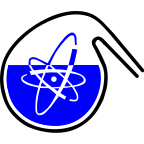Speaker
Description
Strontium-90 is released to the environment during accidents in nuclear facilities and nuclear explosions. It can penetrate human organisms with food, including milk. Once absorbed into the body, it is accumulated mainly in bones. Studies were conducted in order to evaluate the current levels of 90Sr in cow milk after more than 30 years from the Chernobyl catastrophe and calculate the annual effective dose (E) from 90Sr. For determination of 90Sr, an indirect method based on measurements of 90Y (90Sr decay product) was used. All measured 90Sr activity concentration values were very low, far below the permitted limits in European Union and Eurasian Customs Union. They ranged from 0.016 to 0.048 Bq/L of milk. There were no statistically significant differences between 90Sr activity concentrations in milk noted in various parts of Poland. An average annual effective dose due to consumption of cow milk (37 L/year) was calculated to be 0.035 µSv/year. It was only about 0.01‰ of the dose received from natural radiation sources (2.4 mSv/year). In conclusion, domestic cow milk was safe in terms of 90Sr contamination.

